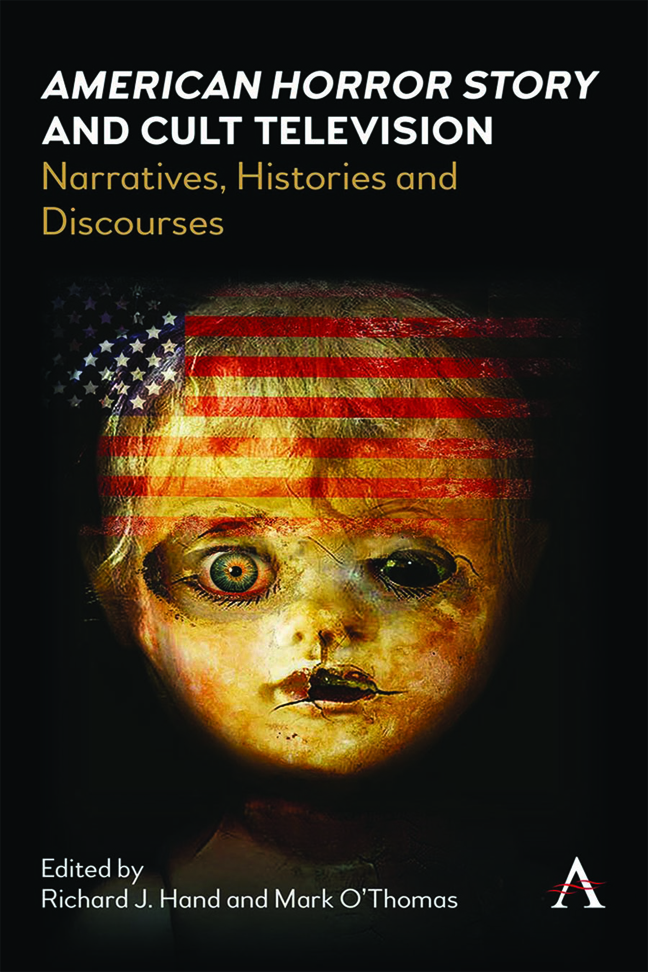Chapter 13 - Into The Womb: ‘Murder House’ and the Erotics of Oppression – An American Horror Story
Published online by Cambridge University Press: 01 March 2024
Summary
Introduction
Nora Montgomery: “No. No. This is wrong! It's all wrong! What did you do to my house […]? I’m terribly confused […] Where's my baby? Tate Langdon: “Is that what you want, a baby?”
(Murphy 2011, “Rubber Man”)‘Rubber Man’, the eighth episode of AHS's ‘Murder House’ season, opens with a scene in which Nora Montgomery, the wife of the original owner, wanders through the 21st century version of her Victorian manor in a state of confusion: she is weepy and hysteric over the loss of her child. This scene is followed by one in which Tate consoles the hysterical Nora, promising he will heal her and give her what she wants: a baby. It is unclear whether Tate's need to please Nora is rooted in his longing for a mother figure or in other desires. The ambiguity intensifies when Tate promptly retrieves a rubber suit from the trash, a BDSM costume stored in the Murder House attic and proceeds to rape Vivien Harmon to orgasm. Vivien is the current wife and mother of the house, who, like Nora, is anxious after the loss of a child, and wants another. The rape to orgasm effectively impregnates Vivien, apparently giving both hysterical women what they want.
‘What does a woman want?’, Doctor Sigmund Freud famously asked (Freud 1963). Murder House has a long history of being owned by male doctors who struggle to understand women's needs, a fact that is not lost on Moira, the Murder House maid: ‘Doctors are charlatans! […] They make you think you’re crazy so they can have their fun! Haven't you read “The Yellow Wallpaper” by Charlotte Perkins Gilman?’ (Murphy 2011, ‘Rubber Man’.) Moira looks at a pregnant, medicated and sexually violated Vivien and she compares her situation in the Murder House to the narrator in ‘The Yellow Wallpaper’ (1892) and to so-called hysterical women throughout Western history. This comparison positions Vivien and the Murder House mythology within the broader context of the haunted house genre in American literature and film, linking the horror haunting the house to trauma that is both historical and psychosexual. Self-conscious of its position within the American haunted house story, AHS's ‘Murder House’ season engages the trope to ask provocative questions about authorship.
- Type
- Chapter
- Information
- American Horror Story and Cult TelevisionNarratives, Histories and Discourses, pp. 219 - 238Publisher: Anthem PressPrint publication year: 2023

